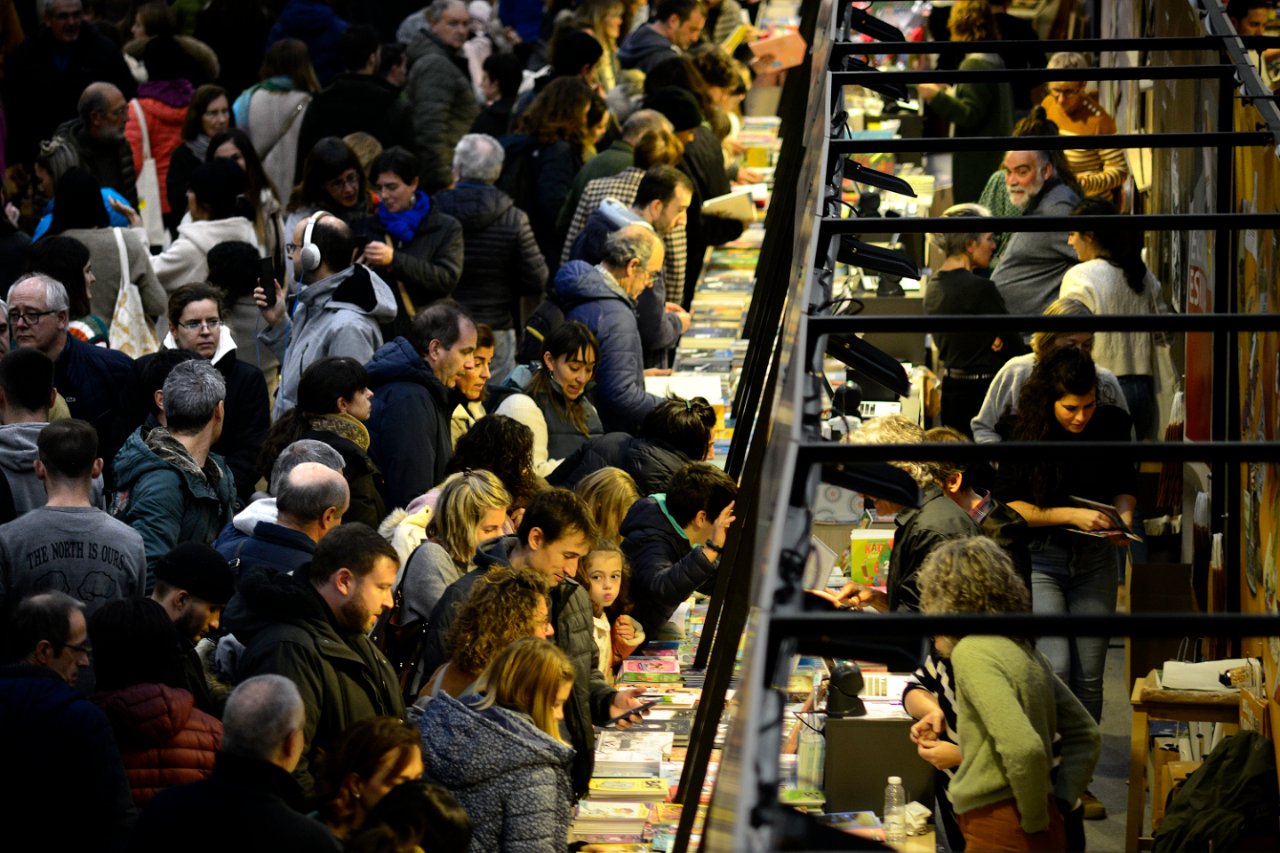A place to start from the bottom in literature
- Does a young writer have space to train and develop skills? Can the writings circulate to prevent the drowsiness? Is it inevitable that the writer does the road alone? What literary circuits do we want? In the shadow of these questions, five young writers have created the Lower Band: Irati Oskoz Egiguren (Astigarraga, 2005), Maddi Agirre Epelde (Vitoria-Gasteiz, 2005), Irati Larrañaga Etxebarria (Bilbao, 2004), Harri Diaz de Heredia Matanzas (Vitoria-Gasteiz, 2004) and Irati Fernandez de Matanzas In December 2023 its first self-production was published, 1. Fanzine called baja.Pero not only want to write, but also reflect together on the forms and directions literature can take.

They met during the stay of the winners of the Urruzuno literary awards in Arantza (Gipuzkoa). The stay was special, as the friendship they established. After the end of the stay, however, they felt the frustration of wanting to keep writing, publishing and learning, but not correct how. You can't find ways. It is not an anecdotal case, many young literature lovers lose relation to writing in this situation. “The young Urruzuno Prize winner is expected to continue writing, but cannot meet the requirements of the competitions that may be presented. What can a young writer do? We have created the Lower Band for lack of alternatives,” Agirre said. Oskoz adds that it occurs in any edition of Urruzuno, which at the end young people feel lost: “You like writing but you don’t see any way out.”
However, the five young people met in December in Eibar not to lose the “connection” of their stay and not to fall into inertia. Everyone felt “having to do something” and they recognized each other that day. They also agreed that it was absurd to try to address the individual literary career. They had no conditions to do it, and it wasn't the model they wanted to follow. They set up a second quote in Agurain, where the idea of the band emerged. Fernandez de Okariz recalls that in order to point out the requests, the mandates of the group were commissioned in the bar notebook, since they did not have “sewing notebook”. They easily use post-irony and count from humor the most important moments of their career.
Writers Group
How does a literary band form? From the environmental point of view, there are not many references to think of literature as a collective process of creation, but, of course, in the Basque letters there has been previous experience: Mainly the Pott and ITU bands. Oskoz believes that literature is a tradition of bands, perhaps too much to say, but says that in any case they want to follow his model. It's called a porrott band mimicking a Pott band. We also know some of the ITU bands. Ten years have passed since. It seemed to us that if we wanted to do something, it didn't make sense to ignore what had been done before. And so has the expression of literary bands in other literary communities. We wanted to give it continuity.”
Aguirre believes that there is an extended individualistic trend in writing, probably due to the weight of competition and prizes. In addition, he stressed that society as a whole and in almost all aspects of life is like this: “When we think about the writer, how do we represent him? Single person at home, writing all day. That image has prevailed.” Harri Díaz de Heredia believes that this myth has distanced him from literature, while teamwork encourages him to write. In other artistic events we consider group work normal. Music is probably the most prominent example. Wu Ming says that a group of writers is like a band of music, but they all play the same instrument.
Literature needs to communicate
They don't want to understand writing as an exercise that is done with oneself. Contrary to what we think, because writing when writing alone is not an individual exercise, like Oskoz. Writing needs community and writings must circulate. “It happens that the texts rush, they breathe no one who reads them if they are not. Reading a text you have written, is reading or reviewing?” Because, in short, literature is an act of communication, or that is also, and therefore, social.
In this sense, Oskoz adds that they feel isolated: “We know the young writers, we know what they have written, we have read their work, but there is no exchange. It is not our custom to write to us, for example, to give our opinion on what he has written, to congratulate us. We know how important that is.”
1. Asked about the fanzine reception at the bottom, the five say laughter. They say they want to receive the feedback, but that the response they have received so far has been less than they expected. They also consider it important to strengthen the exchange between those working on literature. They want the separation between author and reader to blur if possible.
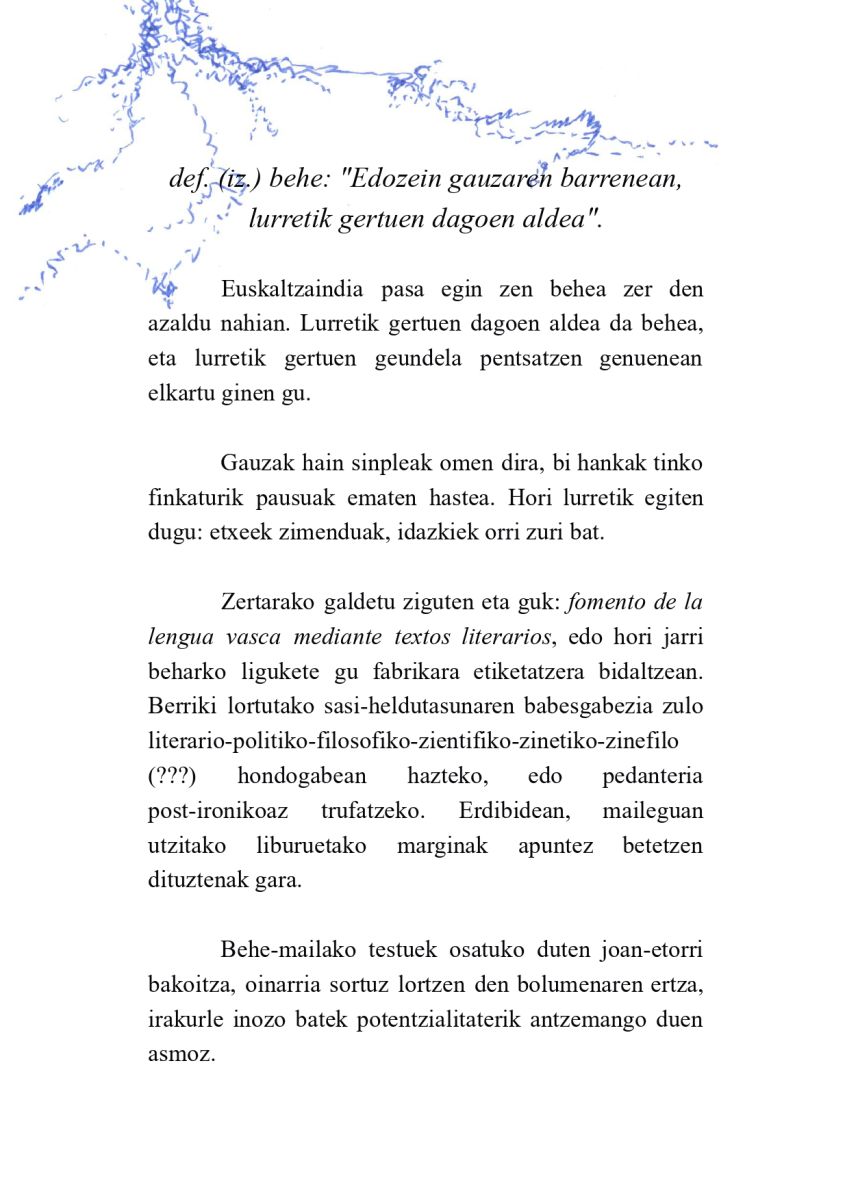
Therefore, in part, the texts they have published are short stories: prose poems in general. They can be read loose or in the order desired by the reader. It is a dynamic, more accessible format that encourages exchange, according to Díaz de Heredia. “It seems that we have to start and finish a book, that we have to read it in that very concrete way, and that you are not doing it well, we have also wanted to alleviate, clearing ambitions,” he adds Oskoz.Larrañaga believes that the dominant genre in commercial or conventional literature is
that of the novel. Do you need a separate, isolated novel, unlike oral literature or narratives? It cannot be resolved here, but it is clear that they have opted for other formats. On the other hand, Díaz de Heredia considers that the “culture of immediacy” is increasingly widespread, and that these trends can also influence the decisions taken, such as the drafting of brief texts.
The school of learning and reflection
was held in Bilbao. So they decided like band 1. A fanzine that brings together texts written by the group members, writing down. The first text of the unit is a manifesto written jointly or editorial. It explains the idea that names the band: Each of the displacements that will form the lower level texts, with the objective of a naive reader perceiving a potentiality, constituting the base of the resulting volume. Satire or humility? For Agirre, “it is clear that what we have brought out in the Basque literature is below, we are young people who have started writing. But we want to acknowledge it, laugh it and claim that these texts have value.”
Diaz de Heredia believes the band is a school to learn. Aguirre emphasizes that they are texts by novel writers. In this sense, Oskoz is aware that he still finds it difficult to control artistic language, intentionally resorting to a style, “for his skill level or”. Writing controls more than the other way around. Therefore, he believes that the band has helped him “not to fall into those tendencies, not always write in the same way”. This is one of the objectives of the group’s formation. According to Larrañaga, they want to “write, learn and err together.”
They emphasize that the writing process has had a lot of experimentation. Most parts are interposed exercises. For example, the first one. “I see my hands down” to address them personally. “Uncomfortable area, what don’t you usually write?” the next one, to write by pulling from where they feel uncomfortable. There's also an erotic poem in volume. “The exercises satisfy the collective character of the band, but the writings are very different. The band gives them unity,” according to Díaz de Heredia.
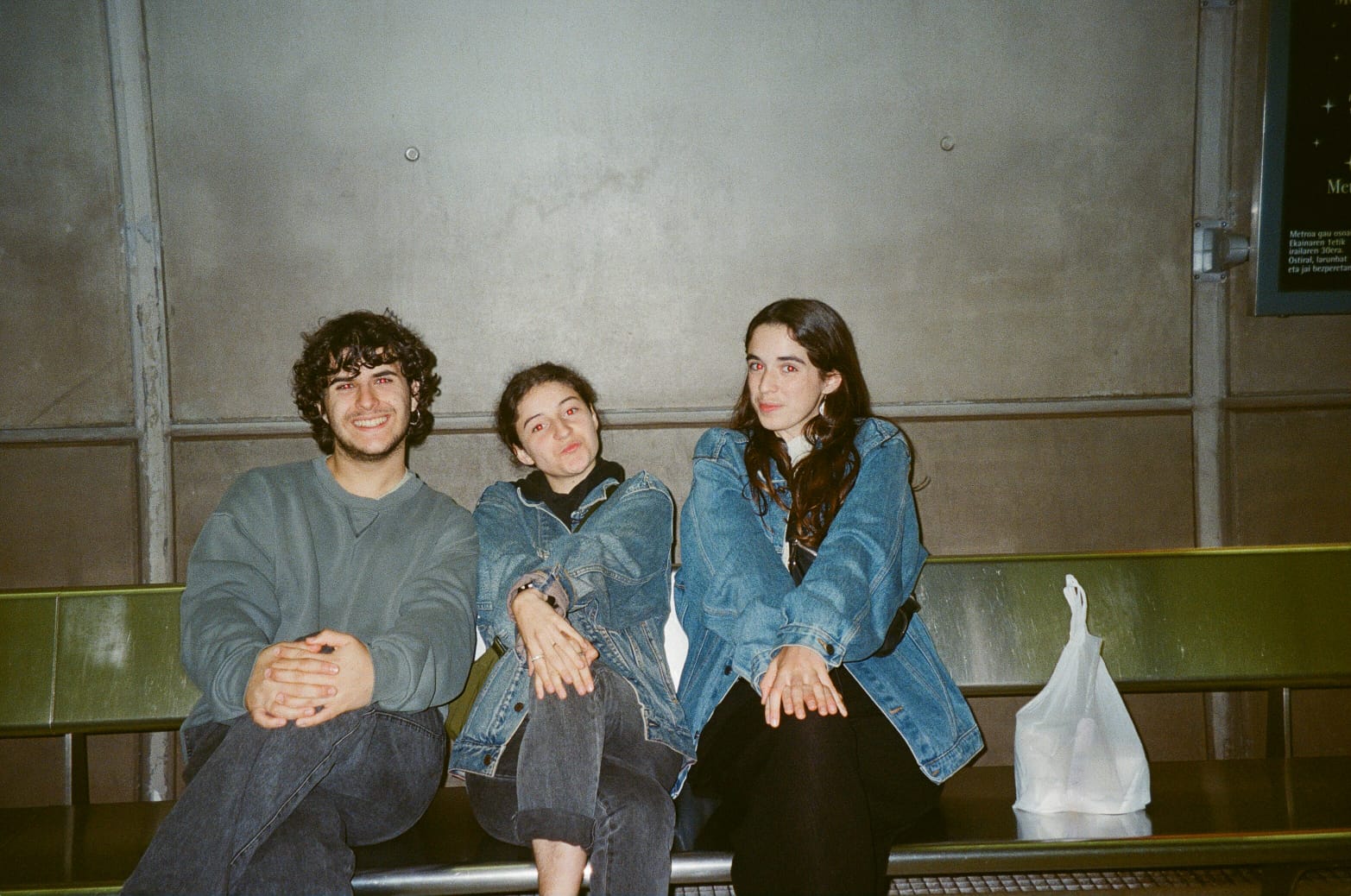
The I, the gu and the world Internal conflicts,
artistic, political and existential concerns permeate the texts of the first issue, numbered of personal experiences and in many cases extremely intimate, without giving up the I. Art is a form of expression for Larrañaga, which can also serve to empty interiors: “From the self we can think about the world. We can talk about art and revolution and personal experiences.”
Aguirre says that what he has written in Alea are his experiences, “clearly.” It tries to “analyze and relate what has happened in your life to something broader”, “give meaning to what you have lived.” It questions whether they often refrain from explicitly writing on issues or “big things”, “fearing that they are too big for us and that’s why we write behind personal experiences.” “That’s why I’ve gone to talk about myself, because it’s the only thing I truly and deeply understand,” Díaz de Heredia reflected.
They unanimously state that they not
only want to write together, but also reflect. According to Oskoz, they have met “because we believe there is at least one vacuum in the world of literature that we can influence.” The band allows to locate and understand the position it is in. “When working as a team, I know what I write and for whom. I talk to my peers about writing, writing, reading, literature. That satisfies me,” says Díaz de Heredia.
“Literature can lead us, where we want to go,” they want to reflect. That is where Oskoz sees most potential, “not only writing together, but reflecting together.” For example, which literary work is given visibility and which is not. “The literary circuit itself makes some proposals easily and leaves others in the air. It does not explicitly deny them, but it does so consciously in certain places,” he believes. “And when we talk about the literary circuit we are talking about writers, editorials, journalists…”, explains Fernández de Okariz.
The drama and adventure of the publication Once
the writing is already carved and printed, how to make known, how to do it? They have faced the challenge with imagination, because the road was not given. Agirre is a bertsolari who is clear that in the literature he has not found a solid community like that of the bertso world. Unlike Bertsolarism, he has been made very lonely the way to publish the writing with the Lower Band.
Among other things, for dissemination, the copy was taken to the Durango Fair. Urruzuno, Mikel Ayllon and Itxaro Borda monitors have been remembered for being animated. “It was an act of vandalism on our part,” says Agirre laughing. They placed stickers and posters with loose phrases extracted from the texts. They also traveled posts distributing specimens, putting the bookmarks of the Lower Band in the books. And more than one responds. “Ah! You are! I’ve seen you on twitter,” Larrañaga says. “If we have only uploaded posts that are merely delirious! This social network is a unique place of expression.” In fact, the Lower Band is located on various social networks and also has a website behebanda.eus.
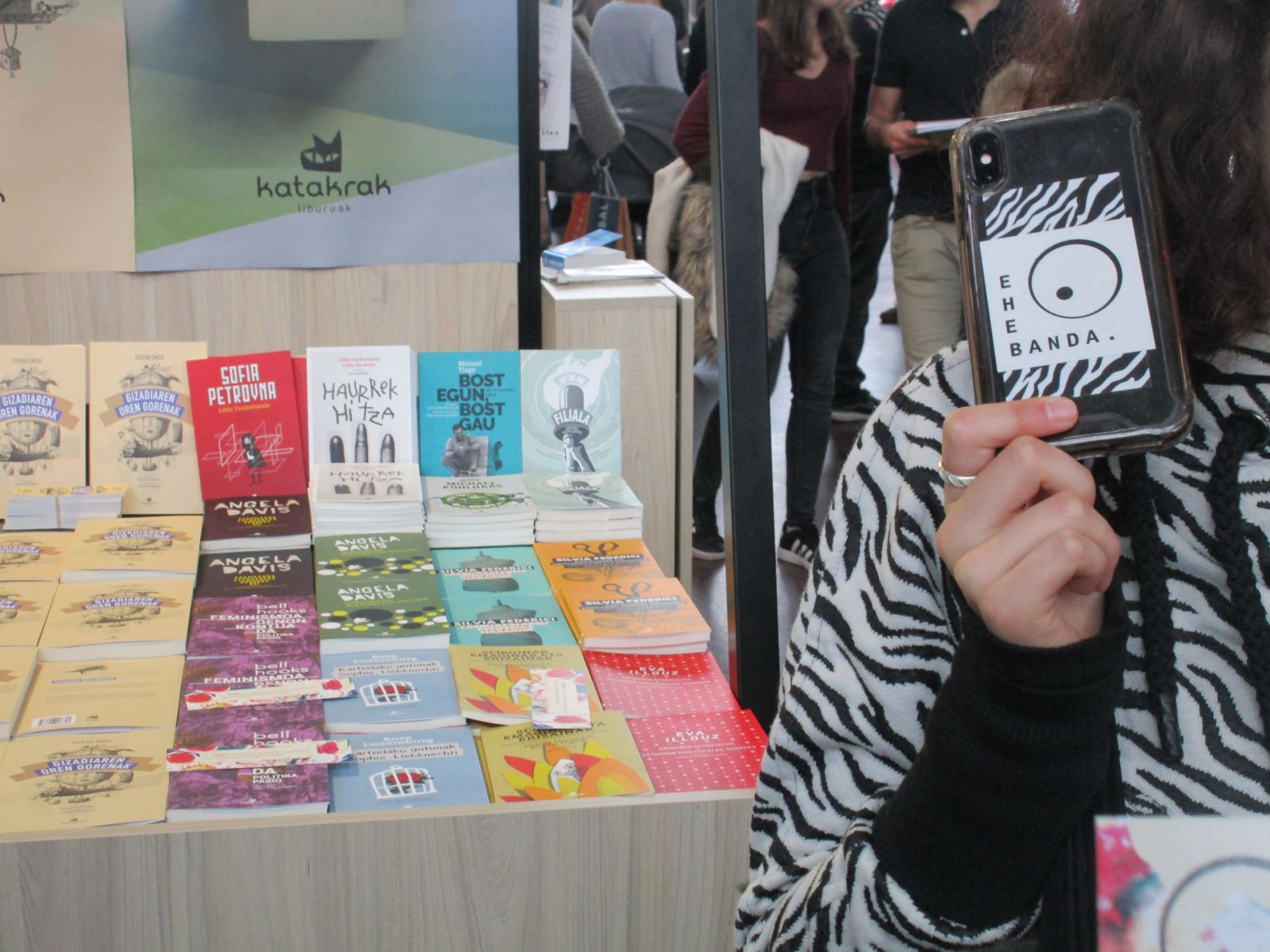
Looking forward we
reached the end of the interview between Anekdota. It cannot be picked up here. Fernandez de Okariz talks about the way forward. They are preparing new things. They want to start a new phase. “We do not want to keep track of the first phase sterile.” Before turning off the recorder, Diaz de Heredia wanted to leave the following phrase in the air: “We did something and…”
Joan Tartas (Sohüta, 1610 - date of unknown death) is not one of the most famous writers in the history of our letters and yet we discover good things in this “mendre piece” whose title, let us admit it from the beginning, is probably not the most commercial of the titles... [+]




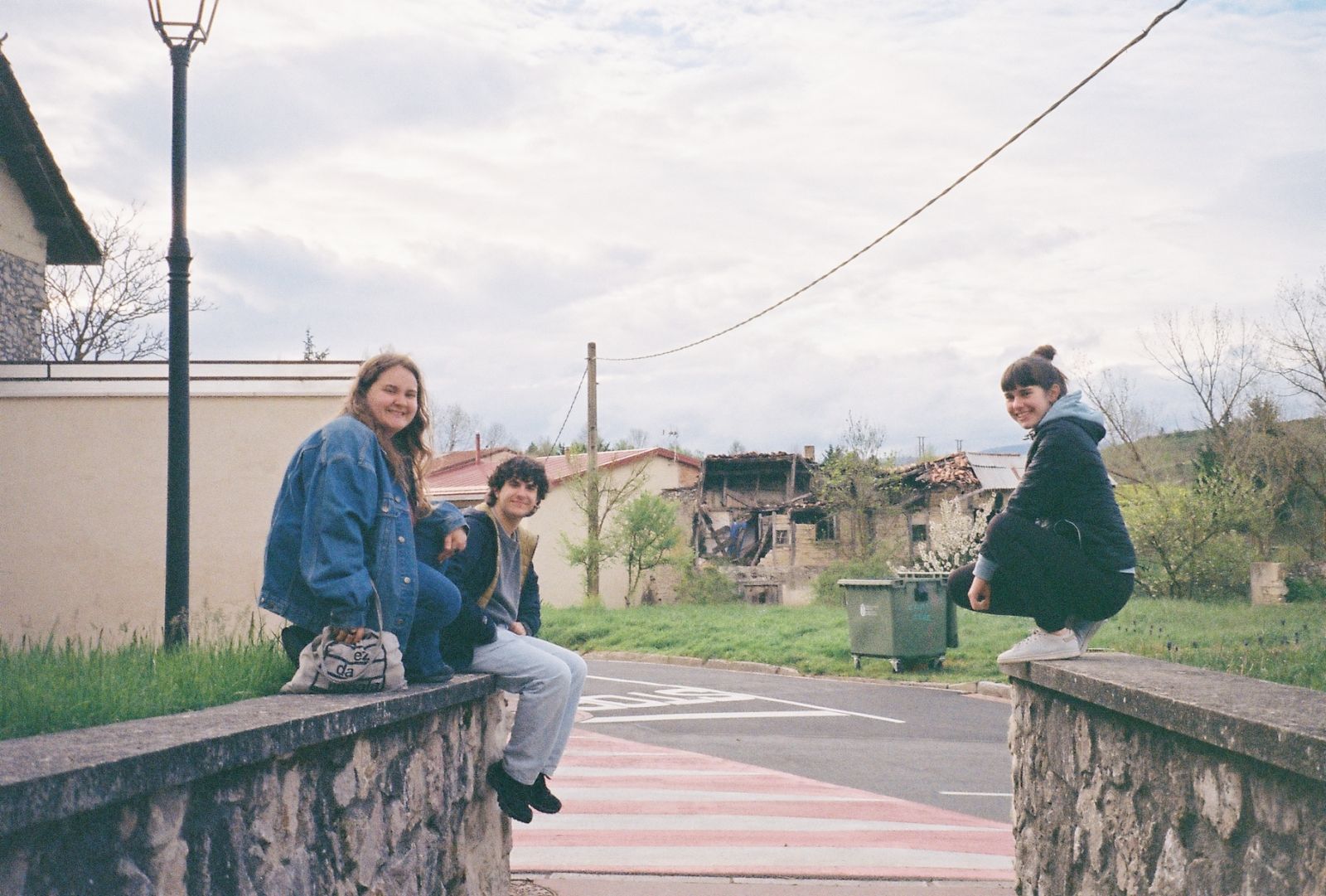





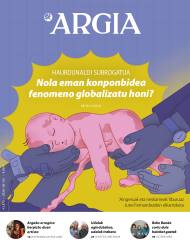

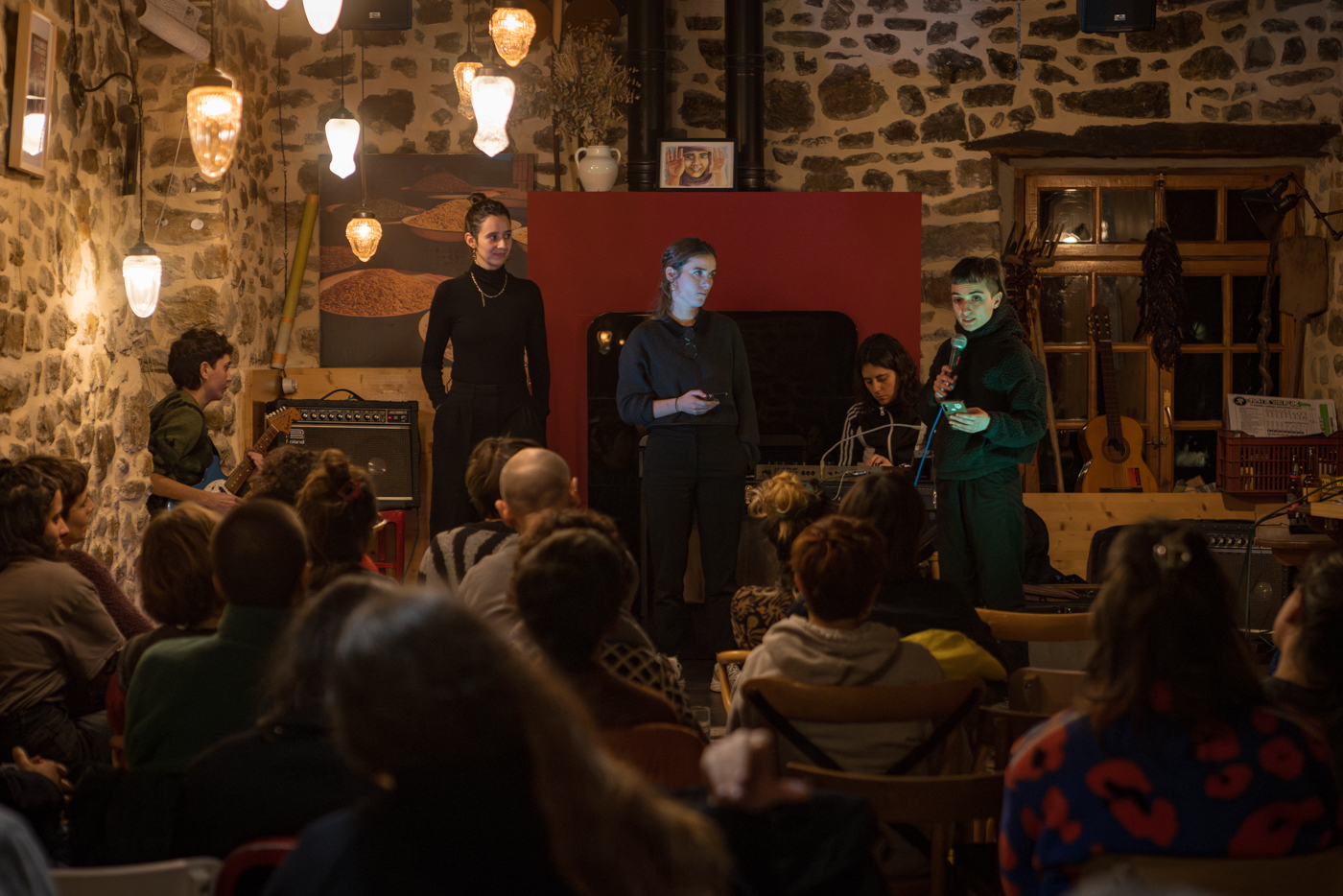





ilbeltza-(1).jpg)



